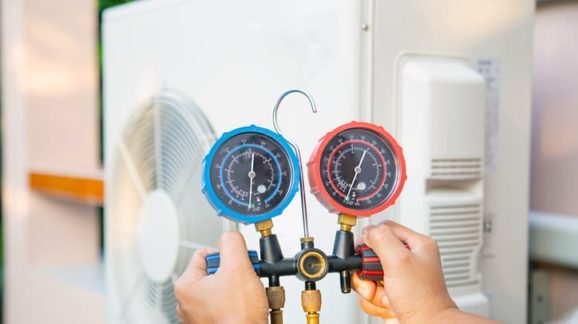Senate Reaches Bipartisan Deal to Raise Air Conditioner Costs

Photo Credit: Getty
Democrats and Republicans on the Senate Environment and Public Works Committee just agreed to a measure that would raise the cost of air conditioning in the years ahead.
It is being done in the name of fighting climate change. To be specific, hydrofluorocarbons (HFCs), a class of compounds used as refrigerants in most home and vehicle air conditioners as well as refrigerators, are being targeted as greenhouse gases. In a bipartisan deal, the Senators agreed to measures restricting future production of HFCs. The plan is to add them as an amendment to the pending energy bill.
For consumers, it’s a double whammy. As supplies of HFCs shrink, their prices will rise and thus boost repair costs for the hundreds of millions of pieces of equipment reliant on them. And new equipment will also become more expensive. In fact, joining environmental activists in lobbying for these measures are refrigerant makers Honeywell and Chemours, both of which have patented a suite of eco-friendly but pricey new substitutes for HFCs. The most common one, used in new car air conditioners, already sells for nearly 10 times more than the HFC it would replace—and that’s the price before it gets the more affordable HFCs pushed aside by this bill.
Originally introduced as a standalone bill late last year, proponents managed to get 16 Republican Senators to sign on by making far-fetched claims that it would increase domestic jobs by expanding exports of American-made air conditioning and refrigeration equipment. In reality, these measures do nothing to increase exports. Most of the global demand growth for this equipment is expected to come from developing nations, but these nations want the most affordable models rather than the costly eco-friendly versions required under these provisions. And in any event, the producers of the supposedly greener products can make and sell them to willing buyers around the world with or without this bill. In reality, these provisions have nothing to do with increasing exports and everything to do with creating a captive domestic market from which to gouge American consumers.
The prospects for these provisions and the larger energy bill are uncertain. History has shown that it is hard for Congress to pass anything this late in an election year, in which case these refrigerant measures may get reintroduced in the new Congress in 2021.
In any event, these restrictions on affordable HFCs, if and when they do pass, would set a very dangerous precedent that goes well beyond the immediate consumer damage. They would represent the first Congressional endorsement of targeting specific compounds based on their contribution to global warming. If Congress says yes to doing so for HFCs, it will have a much harder time arguing against doing the same for carbon dioxide emissions from fossil fuels.